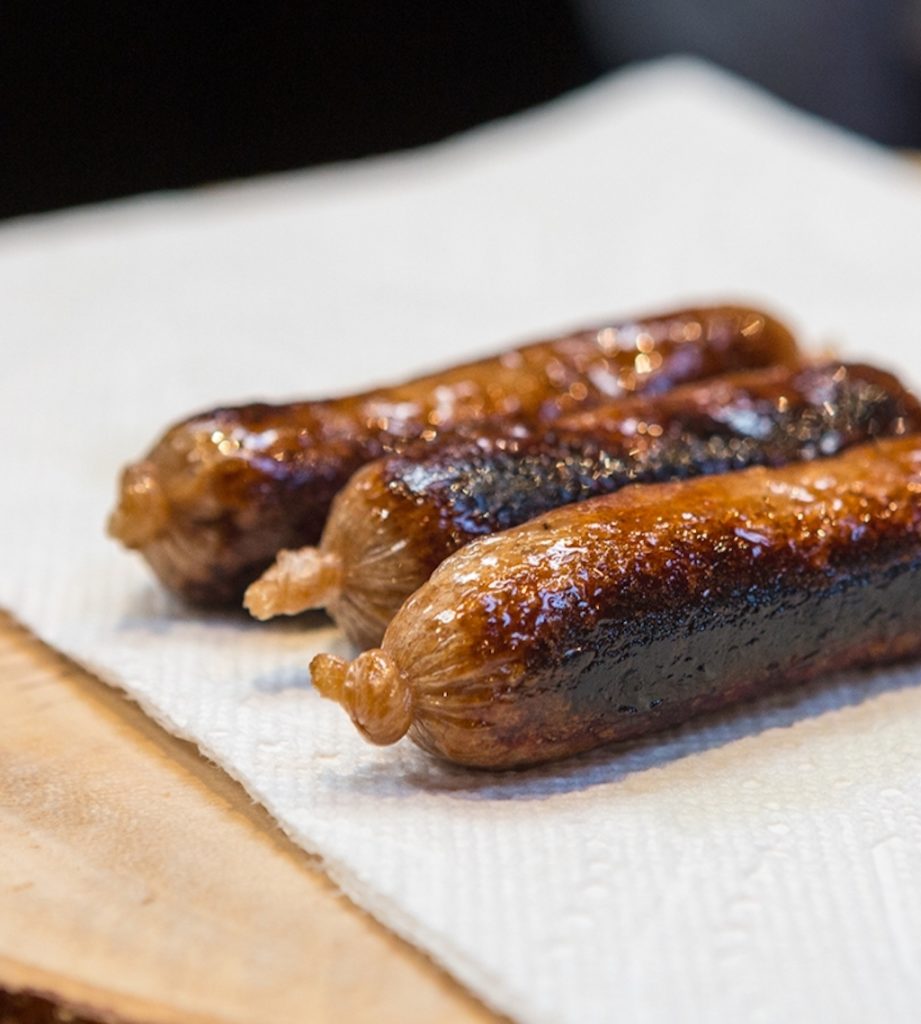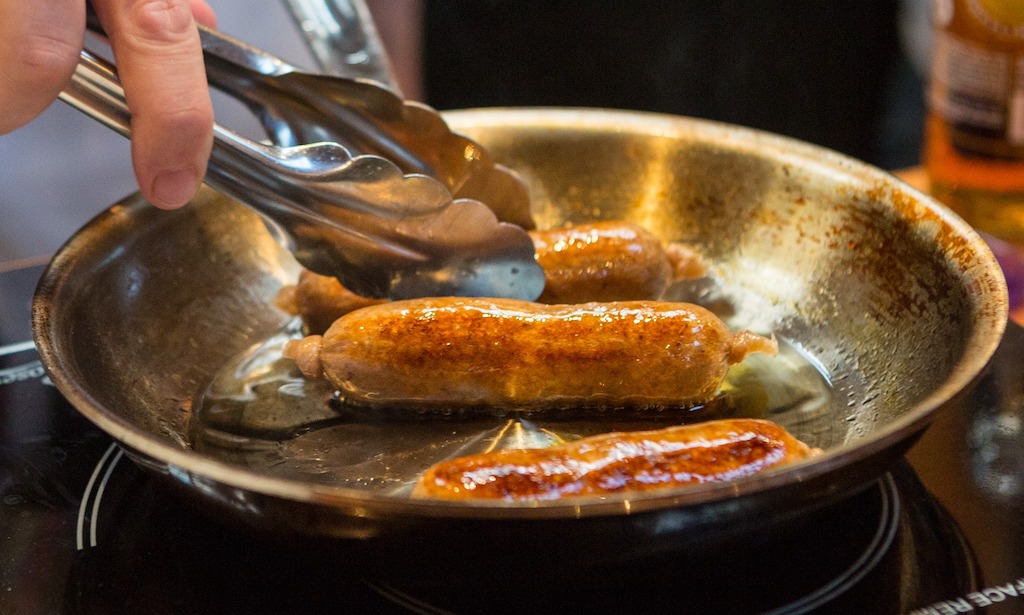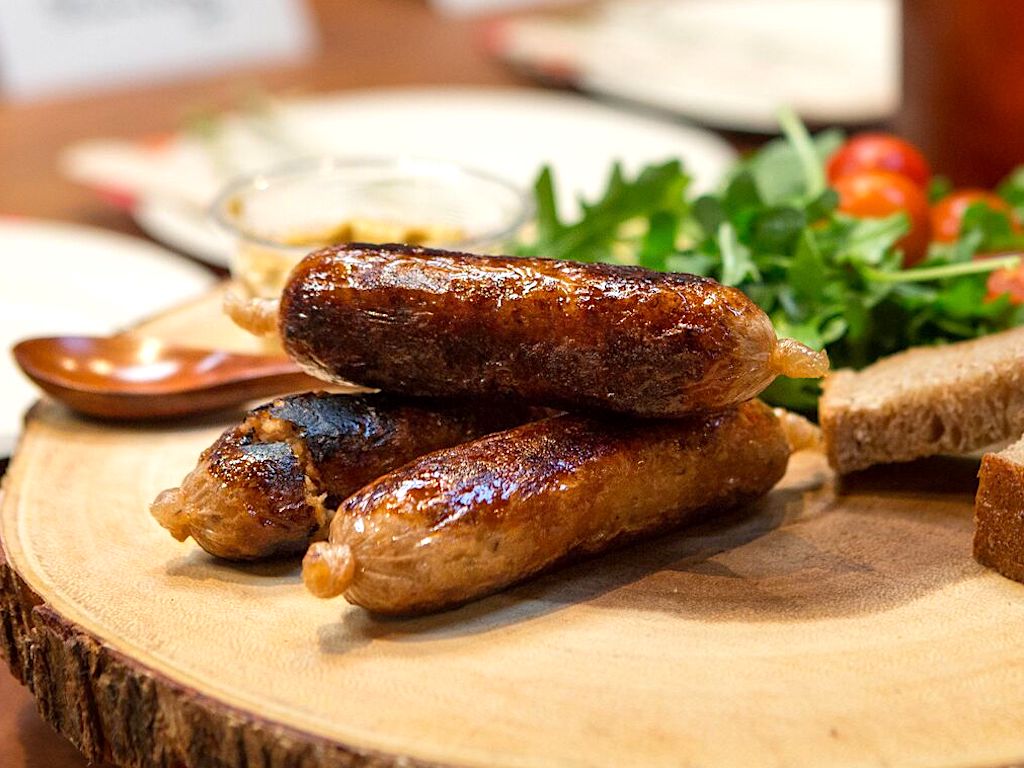4 Mins Read
New Age Meats is racing ahead to scale production and launch its first product, cell-based sausages, in the US by 2022 after bagging $25 million in funding. The new Series A round, led by South Korean energy giant Hanwha Solutions, will also pave the way for the Californian food tech to tap opportunities in Asian markets, where demand for meat is set to skyrocket.
New Age Meats has announced the closing of a $25 million Series A round, led by South Korean energy and real estate conglomerate Hanwha, alongside existing investors including IndieBio, TechU Ventures and Siddhi Capital, among others. The Berkeley, California cultivated sausage maker described the investment as a “crucial milestone” to fuel its scale up and launch plans for the US, and Asia in the long-term.
Cell-based meat sausages by 2022

Since its founding in 2018, New Age Meats has debuted hybrid cell-based pork sausages that contain plant-based ingredients. It plans to scale up its technology to begin production by 2022, to deliver to the US market a “variety of sausage products” in the same year, pending regulatory approval.
Prior to the Series A, the company’s hybrid cultivated meat technology had already won the backing of major investors including Rxbar founder Peter Rahal, as well as tech-focused investors such as Supernode, Climate Capital and Deep Ventures in its seed round.
Commenting on the latest financing led by Hanwha, New Age Meats CEO Brian Spears said the South Korean conglomerate “more than any other investor, really got our unique approach”.
“And that is to understand why our senses light up when we eat meat—then create a sustainable and humane process that delivers this experience in an affordable and widely available way.”
Ahead of its planned launch by 2022, New Age Meats says the funds will enable the doubling of its workforce, and contribute to the construction of its 20,000 square-foot pilot plant in Alameda, California.

Looking to Asia
With Asia set to account for a significant portion of the world’s growing demand for animal protein in the decades ahead, New Age says that the region will be its first international market after delivering cell-based sausages within the US. Pork is also the most consumed animal protein in Asia, with China currently accounting for nearly half of the world’s consumption.
Having the backing of Hanwha will no doubt assist in its Asia-forward strategy, with other US cell-based food techs such as BlueNalu also taking a similar approach to draw on the networks of strategic investors and partners. In the case of BlueNalu, it has forged partnerships with players like Thai Union and Mitsubishi with the view to bring its cell-cultured seafood to Thailand and Japan.
Spears shared that “Hanwha’s vast financial resources along with its interest in the nutrition business made it a natural choice as a financial ally and strategic partner.” The CEO added that alongside other investors, the startup is “well on our way to becoming the largest and most innovative meat company on Earth.”

Hybrid cell-based meats
New Age Meats is part of a growing number of cultivated players that believe hybrid products will be the fastest route to market. Hybrid products contain both cell-based and plant-based ingredients.
Other startups that have debuted hybrid prototypes include British startup Higher Steaks’ pork belly, for instance, which contains cultivated pork and plant-based proteins and fats. US-based Mission Barns, the market of cultured bacon, just announced a partnership with Chinese vegan meat startup Herotein to co-develop alt-proteins that contain plant-based protein and cell-based fats.
New Age’s CEO says that hybrid products are going to be the future of building a more sustainable supply chain. “Our hybrid products, which combine cultured meat with plant-based protein, do just that. And we’re moving as quickly as possible to scale up and satisfy the growing demand for affordable meat alternatives around the world.”
All images courtesy of New Age Meats.




